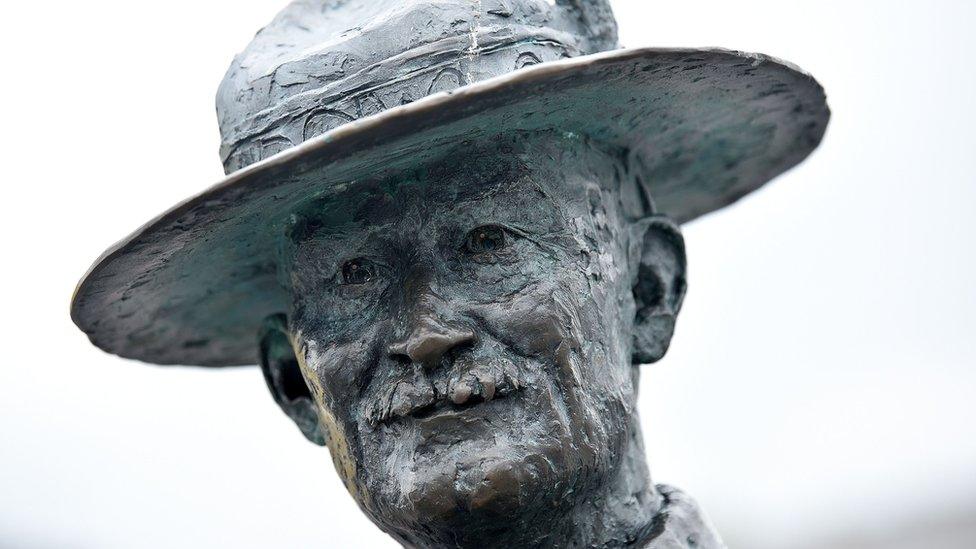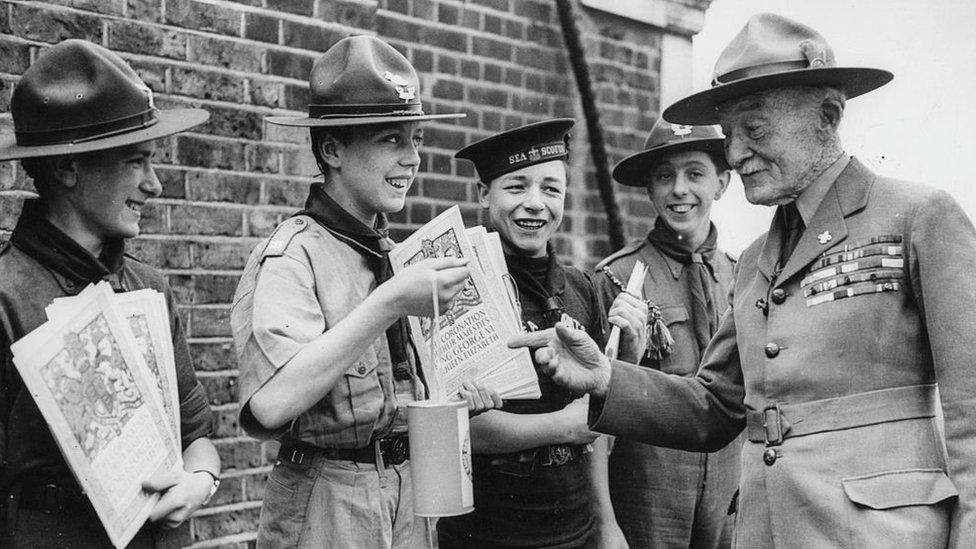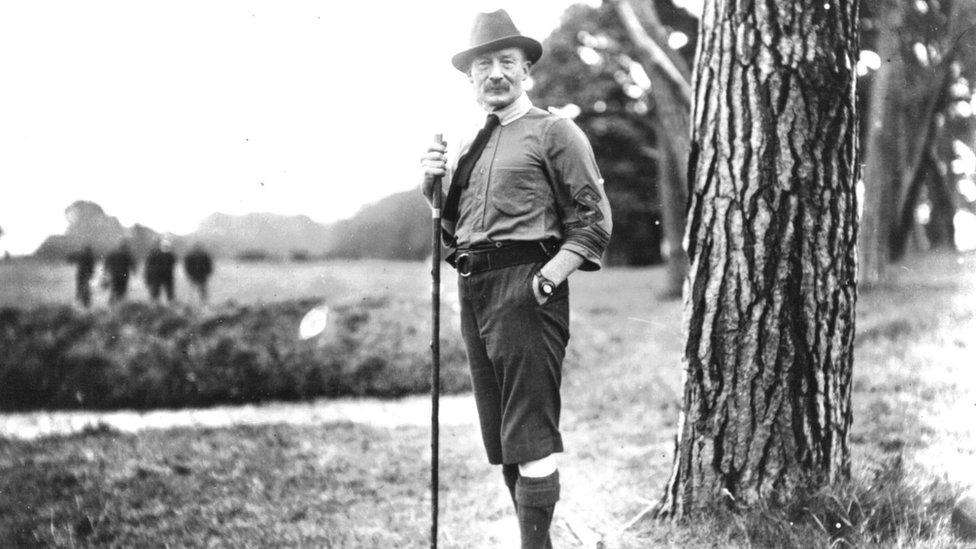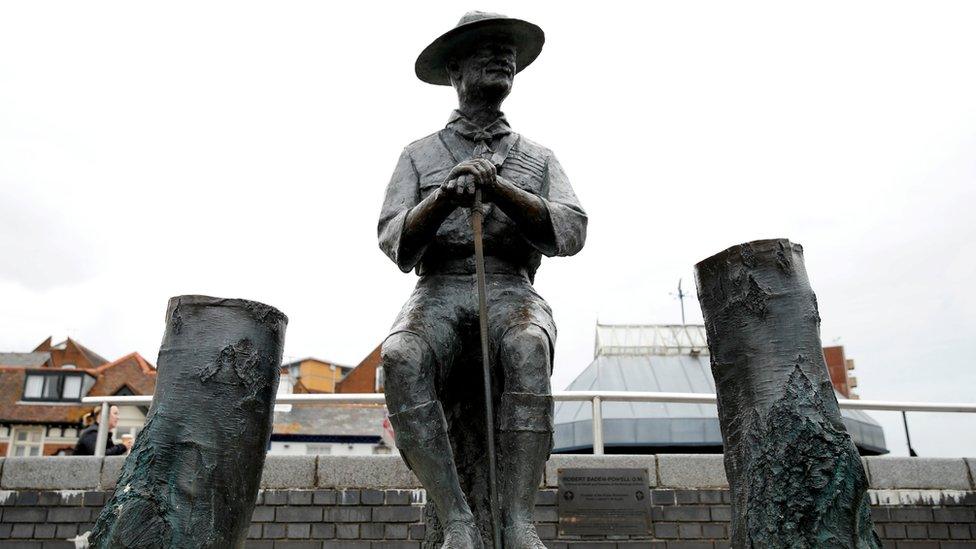Lord Robert Baden-Powell: Who was he?
- Published

If you have ever been to Cubs, Scouts, Brownies or Guides, you may have heard the name Lord Robert Baden-Powell.
He was the founder of the Scouting movement and a significant figure in the UK in the first half of the 20th Century.
But who was he, why did he come up with the idea of the Scouts and Guiding, and why has he become a controversial figure?
Here's what you need you know.

As a boy
Born in 1857, Robert Stephenson Smyth Baden-Powell was born in London and was one of 10 children.
His father, who was a professor at Oxford University, died when Robert was three years old, leaving his mother, Henrietta, to look after a large family alone.
A clever child, Robert was awarded a scholarship to a very exclusive private school in Surrey, and was encouraged by his mother to learn the piano and the violin.
He was described as a keen sailor and a young adventurer, and would often play outdoors with his siblings during the school holidays.
It was while he was at school that his love for the great outdoors was fostered. He would hide in the school's grounds, study wildlife and even catch and cook rabbits.
He put his practical adventurer skills to good use and, upon finishing school, joined the army.
From army life to the Scouts

Scouts from all over the world come together to an annual "Jamboree"
During his time in the military, Baden-Powell specialised in map-making, scouting (exploring areas to gain information), and began training other soldiers in these skills.
He climbed the ranks and began awarding soldiers under his command badges for their achievements - much like in modern-day Scouting.
For his leadership, Baden-Powell was awarded medals of his own for his actions in the Boer War in South Africa. He led men in the well-known Battle of Mafeking (1900) where British troops held out against a much larger enemy.
Back at home
Upon returning home, he found the small handbook he had written for soldiers, "Aids to Scouting", was being used by youth leaders and teachers all over the country to teach observation and woodcraft.
This led to Baden-Powell organising an activity camp on Brownsea Island off the Dorset Coast for 22 boys from different economic backgrounds.

Baden-Powell on Brownsea Island on the first ever Scout camp
It was the start of the Scout Movement; an event now commemorated with a foundation stone on the island.
His handbook was published the following year, and boys formed 'Scout Patrols' to try out the book's ideas.
The scout movement grew all over the world and Baden-Powell was declared "Chief Scout of the World".
He died in 1941, aged 83. His wife, Lady Olave - the first Chief Guide - continued to promote Scouting and Girl Guiding around the world until her death aged 88 in 1977.
Why is he a controversial figure?

Baden-Powell is criticised by campaigners who have accused him of being racist, expressing hatred towards gay people and having sympathy for Adolf Hitler and the Nazis - in 2010, old papers were released which revealed he had been invited to Germany to meet Hitler.
Others have defended him by saying that, while people may reject his views now, they were shared by many during his time and that it's unfair to judge him by what we think today.
In June 2020, there was an argument about a statue of Robert Baden-Powell in Poole, following anti-racism protests sparked by the death of George Floyd.
Although some people opposed the 2008 statue, the decision to remove it on police advice - which said it was a target for protestors - has also been criticised, including by the local MP.
The council said it acknowledged there are different views of Baden-Powell and it planned to involve all relevant communities and groups in discussions about its future.
- Published10 June 2020

